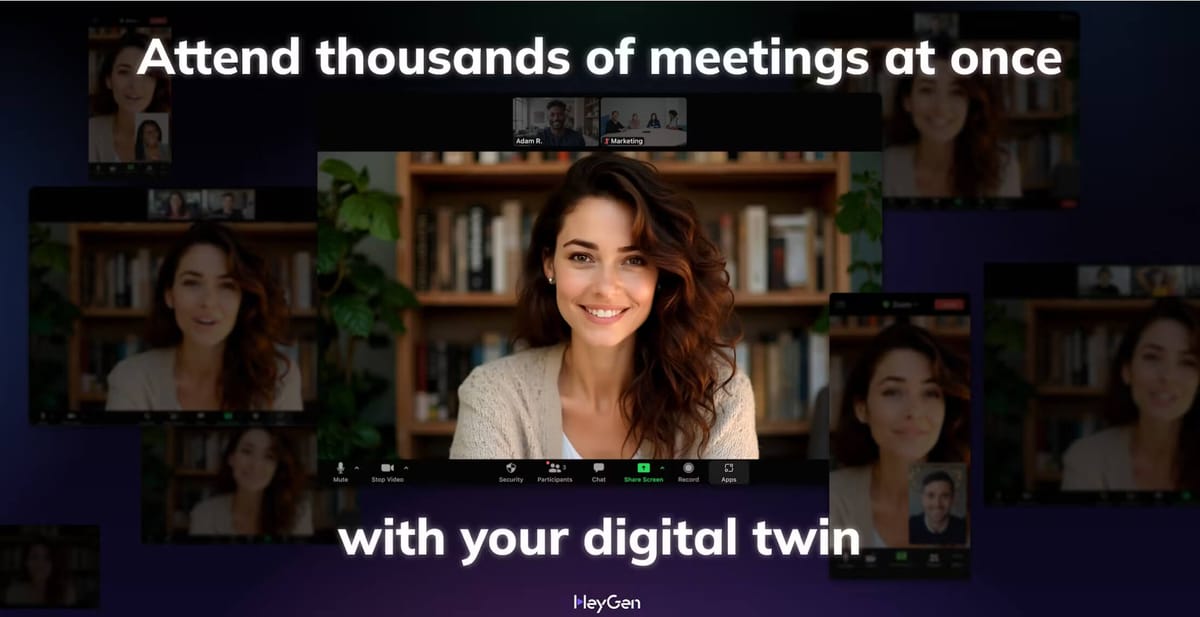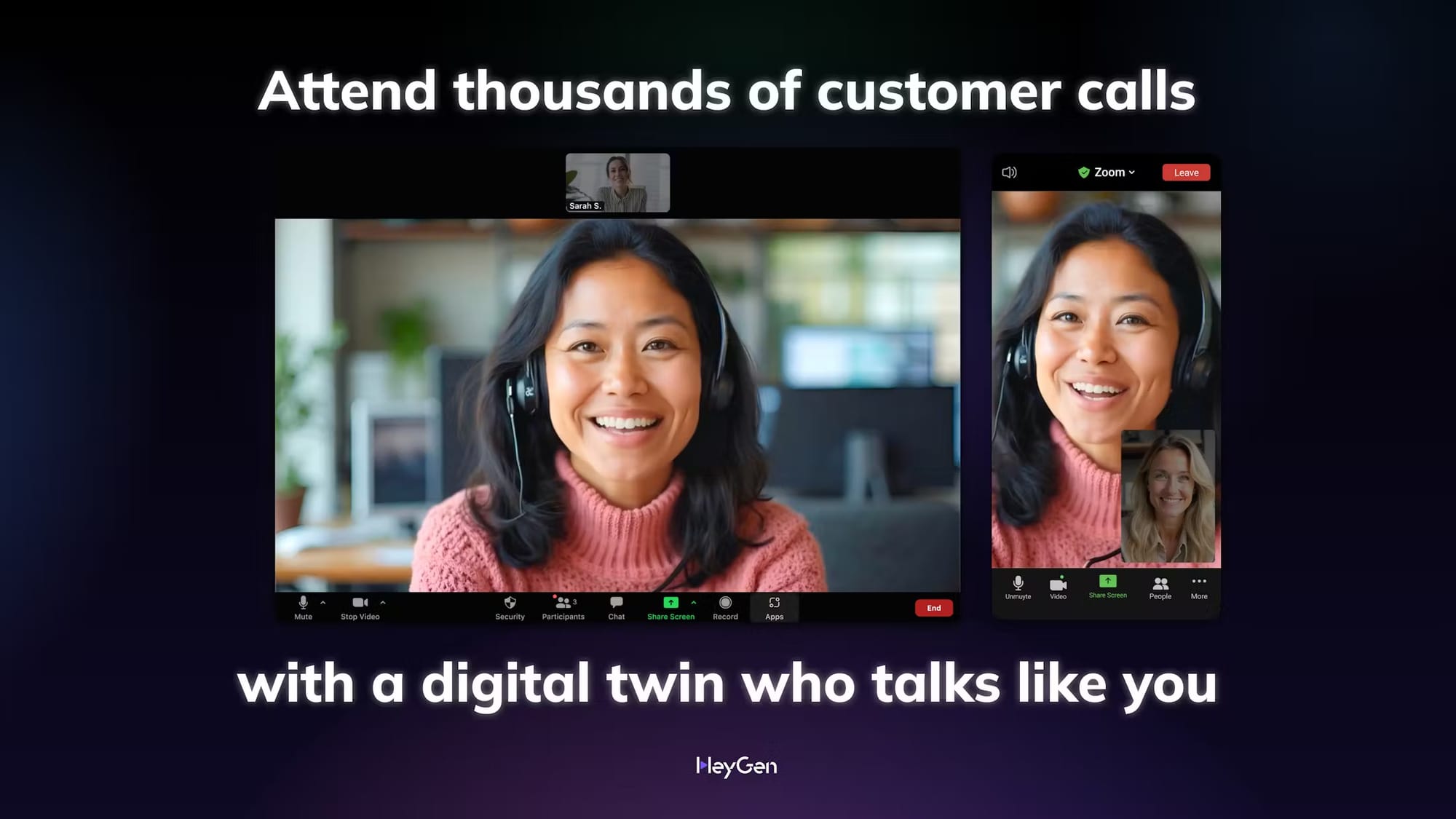
Imagine being in multiple meetings simultaneously without ever actually attending any. HeyGen's new Interactive Avatar feature makes this possible. The company has announced a new platform feature that allows you to create and send AI-powered digital versions of yourself to Zoom meetings and other live interactions. This application of AI technology could change how people manage their online presence and participate in virtual meetings by providing a more flexible and scalable approach.
The Interactive Avatar can join one or multiple Zoom meetings simultaneously, 24/7. It's designed to not only look and sound like you, but also think, talk, and make decisions in a way that mimics the way you would (or should?).
Wayne Liang, Co-founder and Chief Innovation Officer at HeyGen, explained that the avatars come equipped with customizable knowledge bases. Users can input company information, brand guidelines, or any relevant data to ensure the avatar accurately represents them or their organization.
One of the primary use cases for these avatars is in customer-facing roles. Imagine setting up an avatar that can assist visitors on your website—answering questions, offering support, or even scheduling follow-ups—all while maintaining the familiarity of your brand's persona. Businesses can also use avatars to train or onboard employees, making it easier for teams spread across the globe to access key information without waiting for live trainers. Some of the use cases highlighted by HeyGen include:
- Online coaching and training
- Customer support
- Sales calls
- Job Interviews
- Language learning and translation assistance
- Therapy sessions
The system integrates with Google Calendar, allowing users to preview upcoming Zoom meetings and assign avatars to attend specific sessions. After each meeting, the avatar provides a summary and recording of what transpired.

During a webinar announcing the feature, Liang shared how the concept evolved: originally focusing on AI-generated video avatars, HeyGen quickly recognised the demand for real-time interaction. "We heard people asking, 'What if I don’t even need to make a video? What if something could just be live on my website or in customer calls?'” said Liang. This led HeyGen to create avatars that could do exactly that—be anywhere, anytime, interacting autonomously with a human touch.
HeyGen emphasizes the avatar's ability to handle repetitive meetings, freeing up users' time for more critical tasks. The technology incorporates OpenAI's real-time voice integration, enabling intelligent and timely conversations.
While the product is still in beta, HeyGen is actively seeking user feedback to refine and improve the technology. The company acknowledges current limitations in video quality and latency but is working to optimize these aspects.
Creation of personal avatars requires users to record specific footage, including listening, talking, and idle poses. HeyGen maintains strict security and moderation policies to ensure avatar authenticity and prevent misuse.
As AI technology become more capable, HeyGen envisions allowing avatars to become more agentic - making decisions, scheduling follow-ups, and performing actions based on meeting outcomes.
Interactive avatars truly represent a significant step forward in AI-assisted communication, that could reshape how individuals and businesses manage their virtual presence and interactions. However, it is important to address questions around authenticity, transparency, and the ethical implications of deploying AI that can so closely imitate humans.
If you’re a business looking for a way to scale your presence, reduce repetitive meeting tasks, or simply explore the cutting edge of avatar technology, HeyGen’s Interactive Avatar could be worth a closer look. Just remember to consider how such tools fit within your broader strategy for maintaining authentic and transparent communication.

